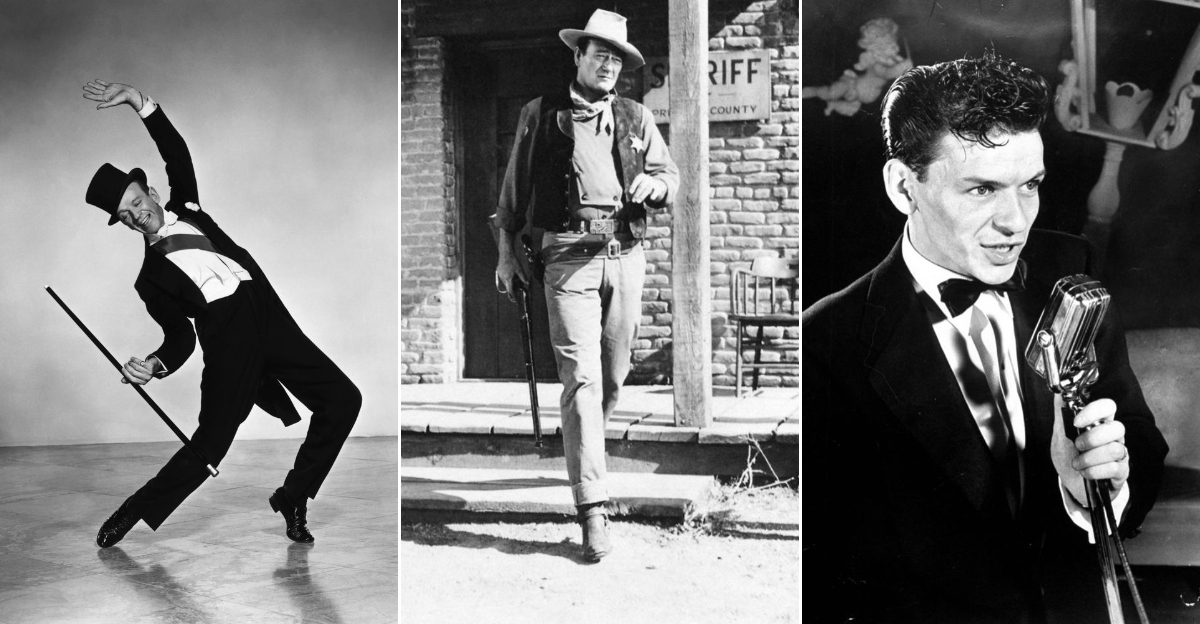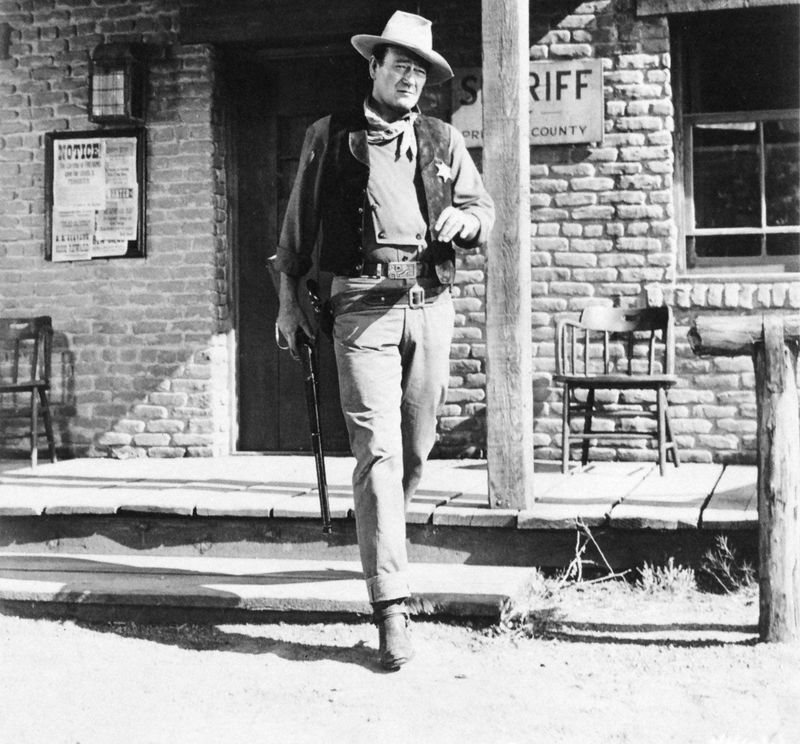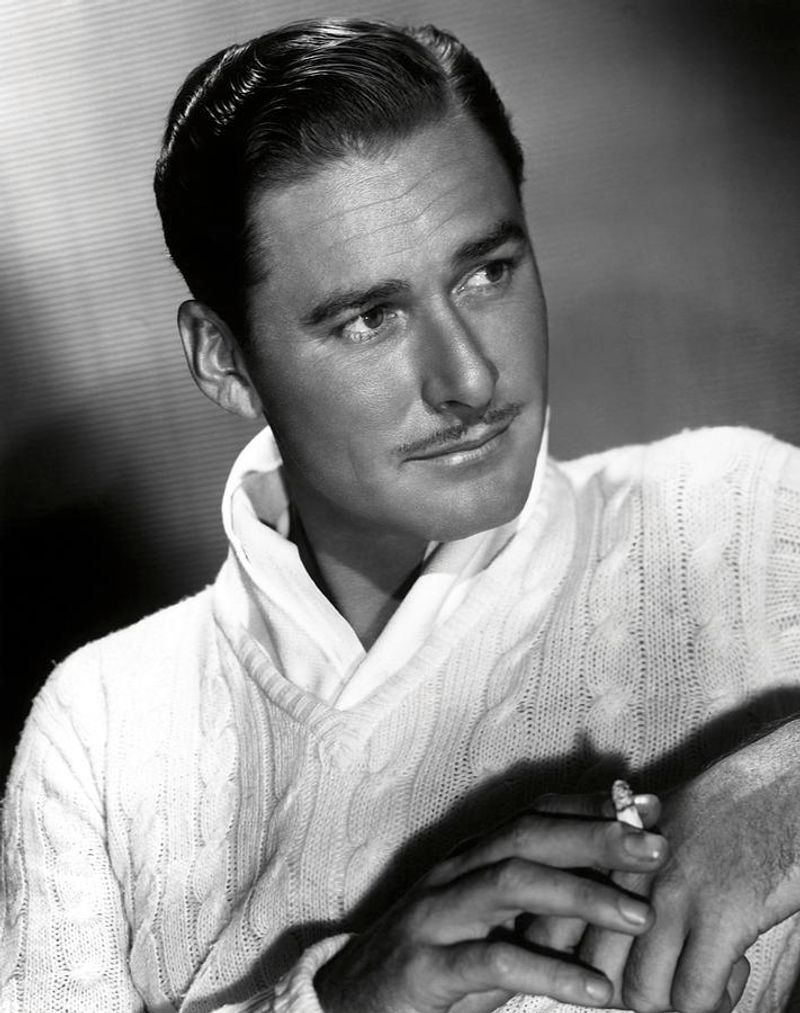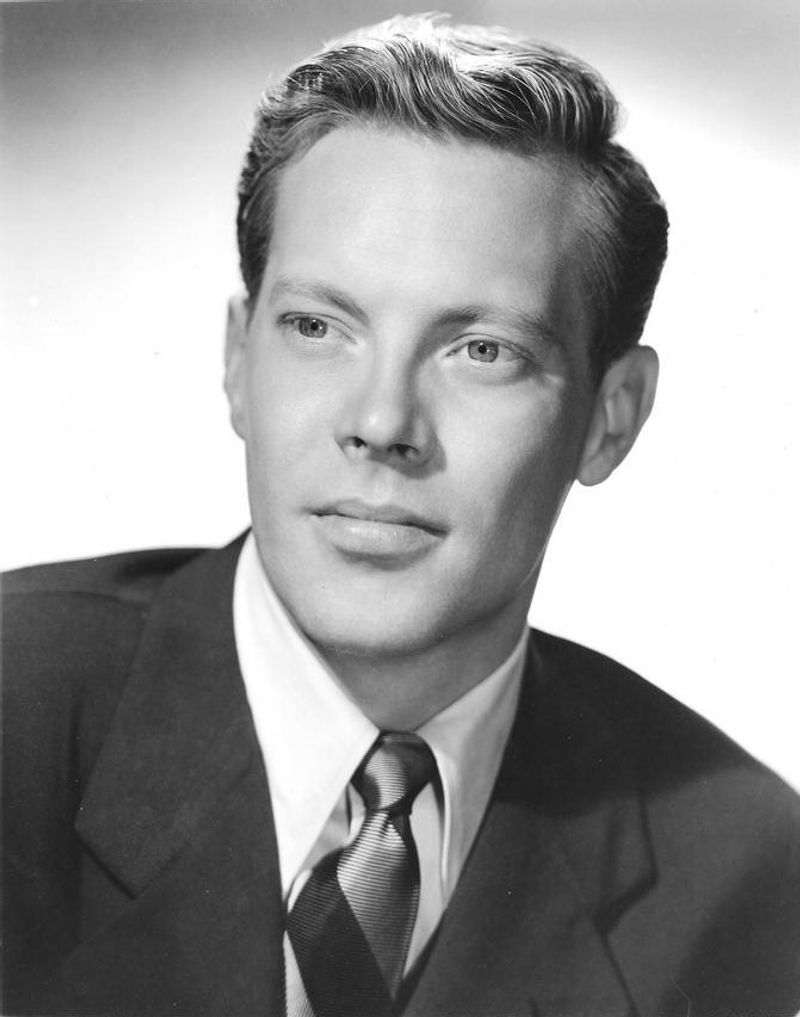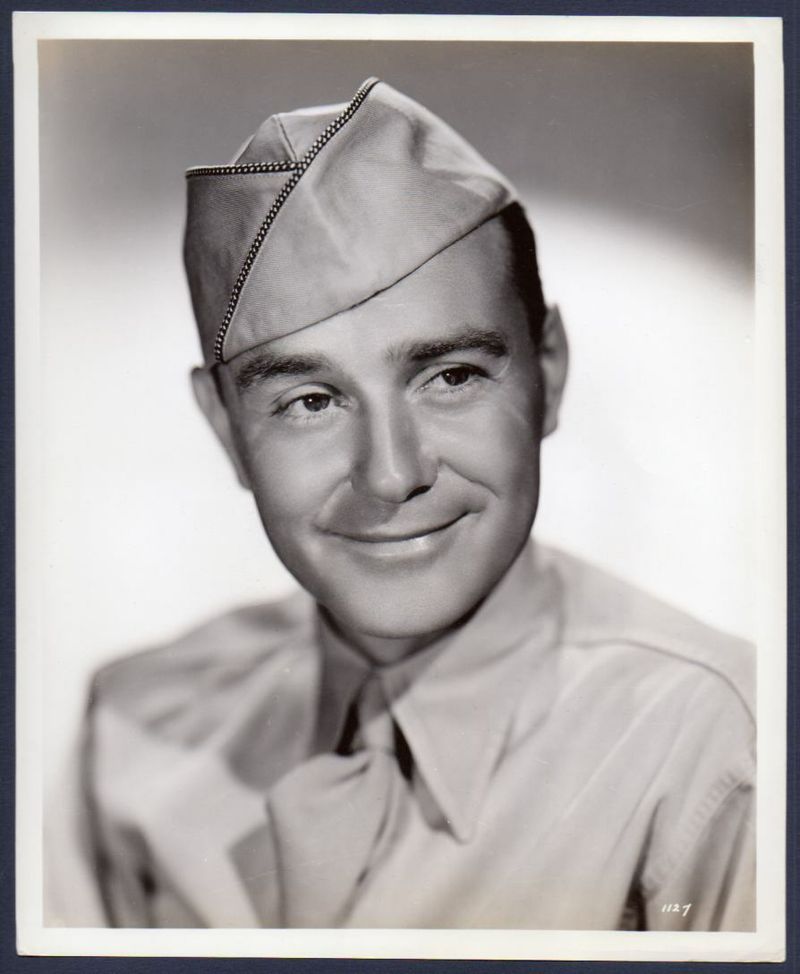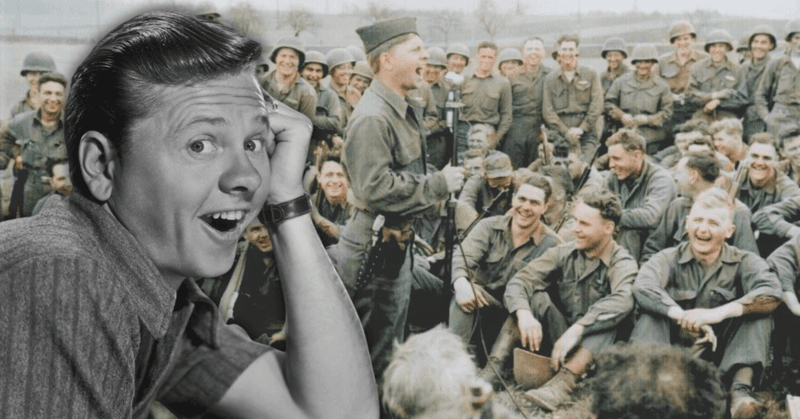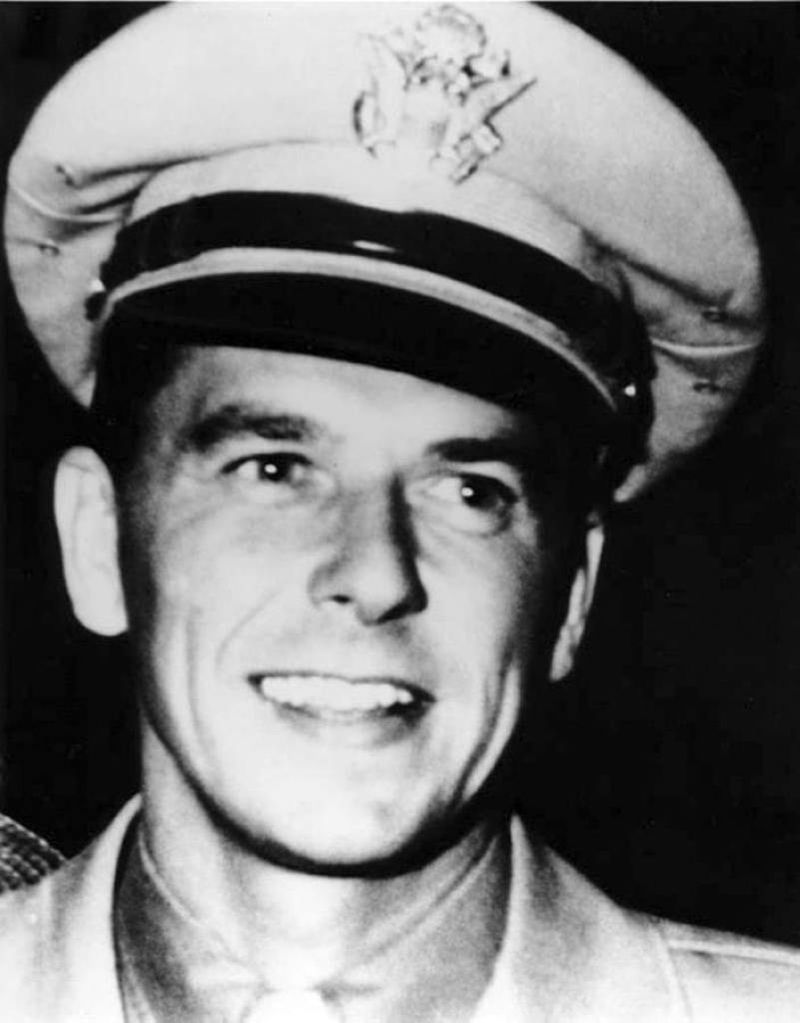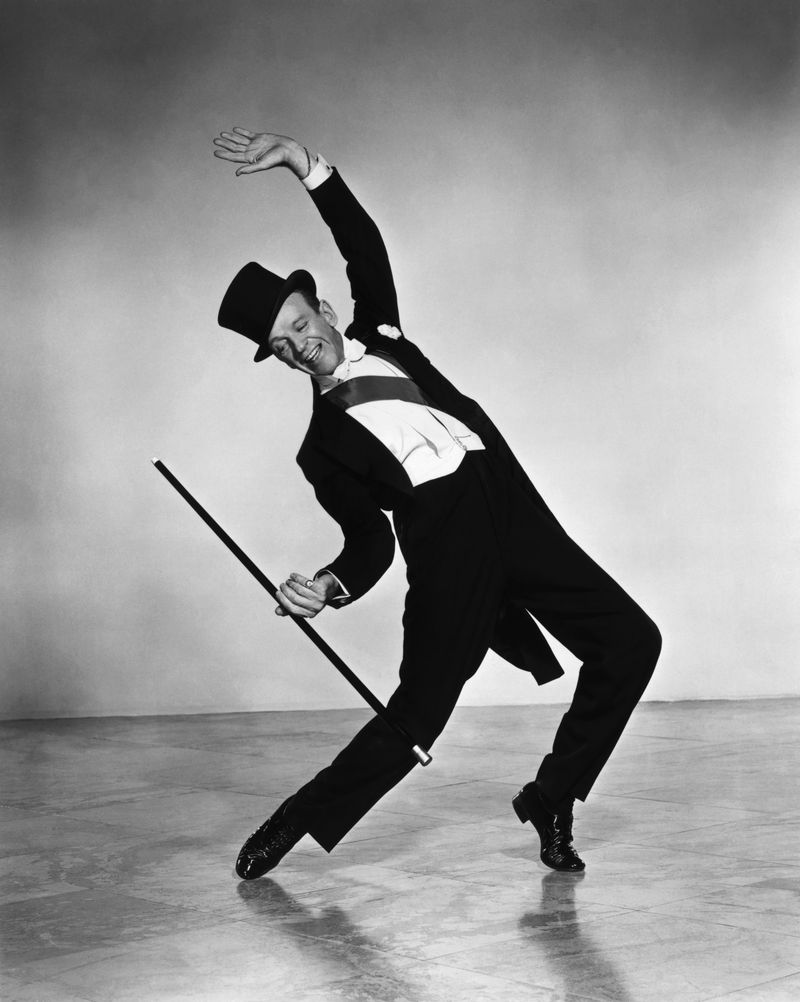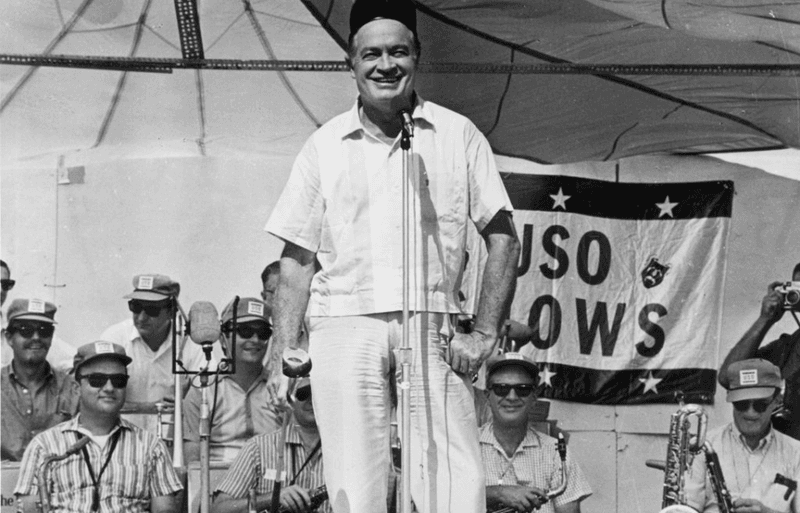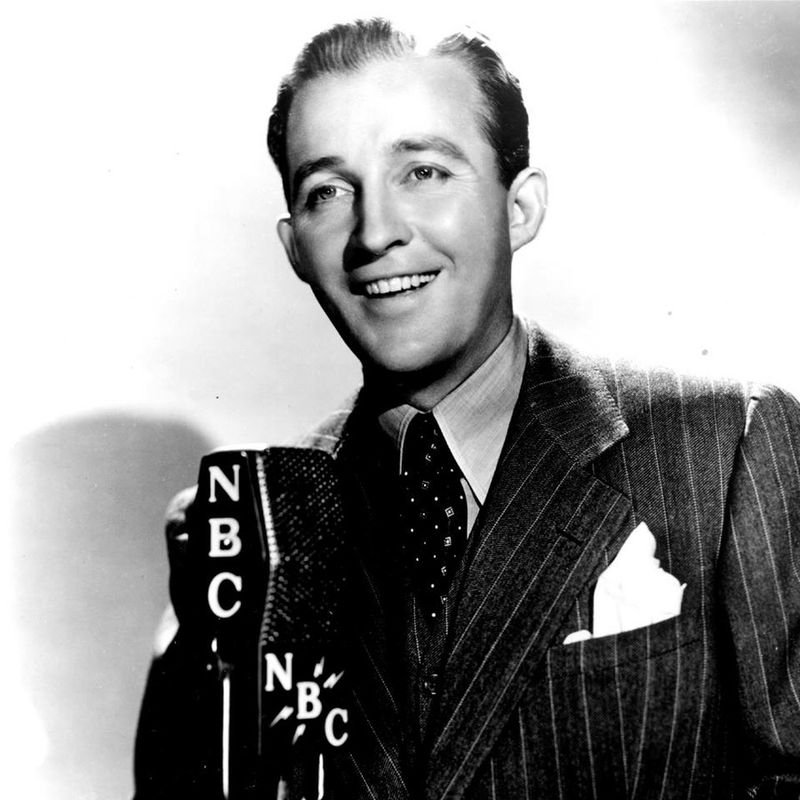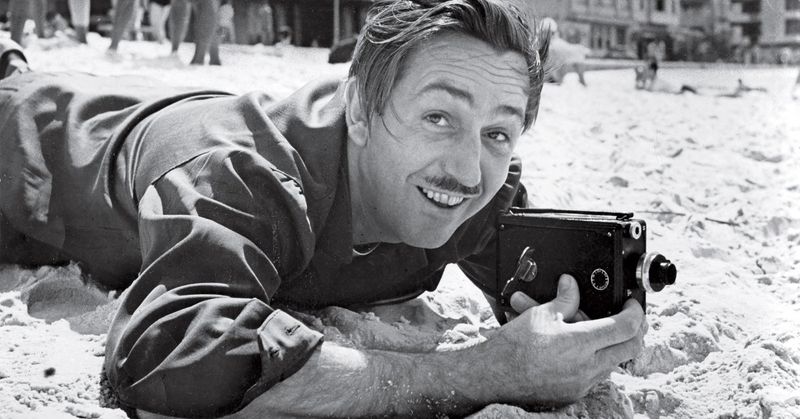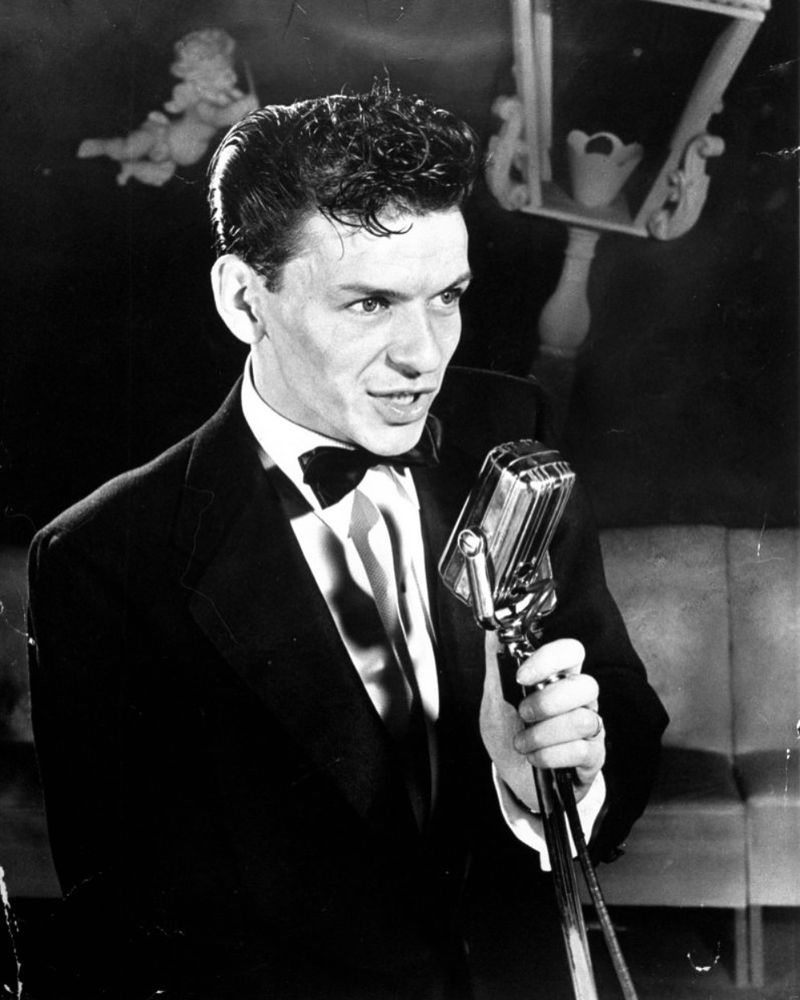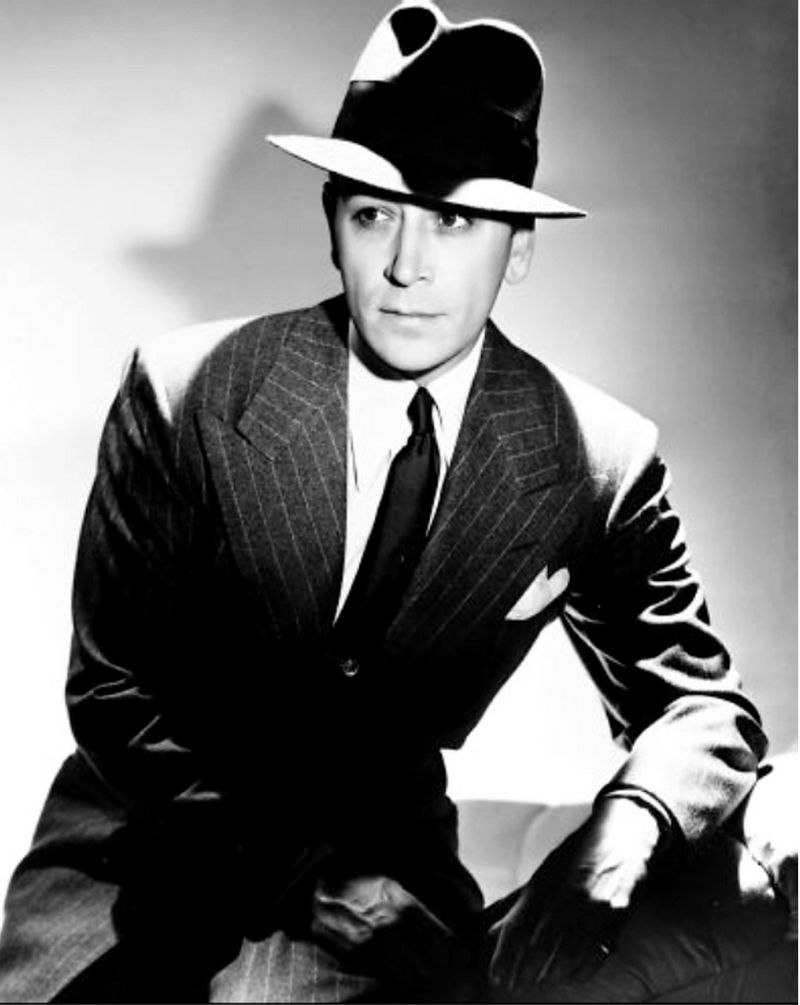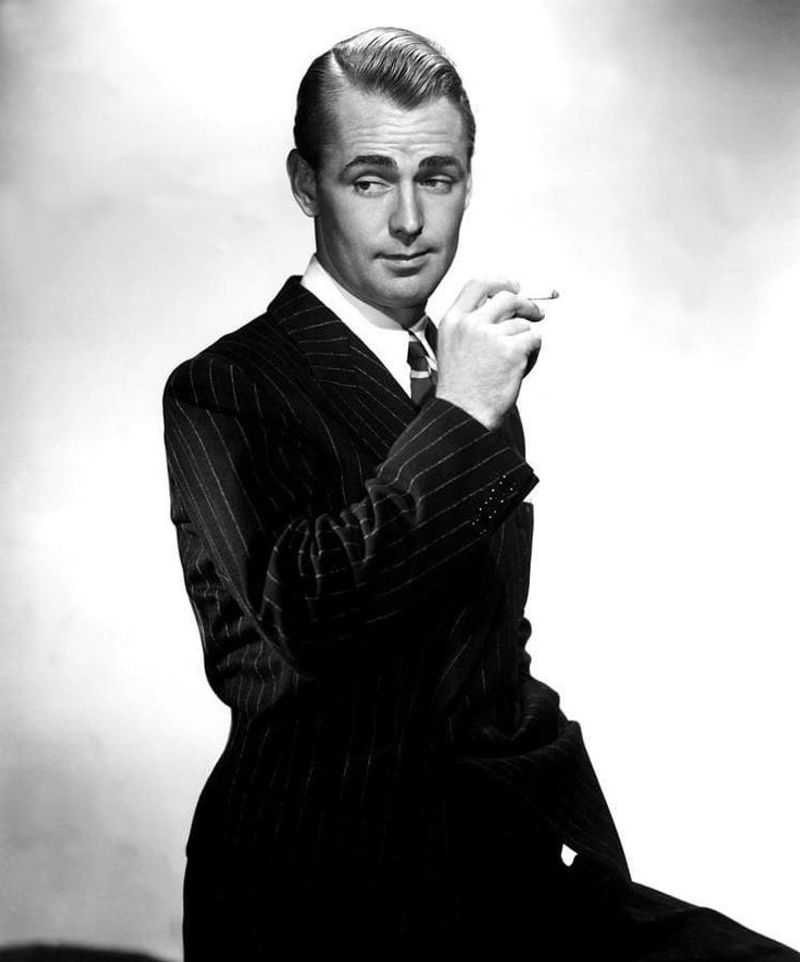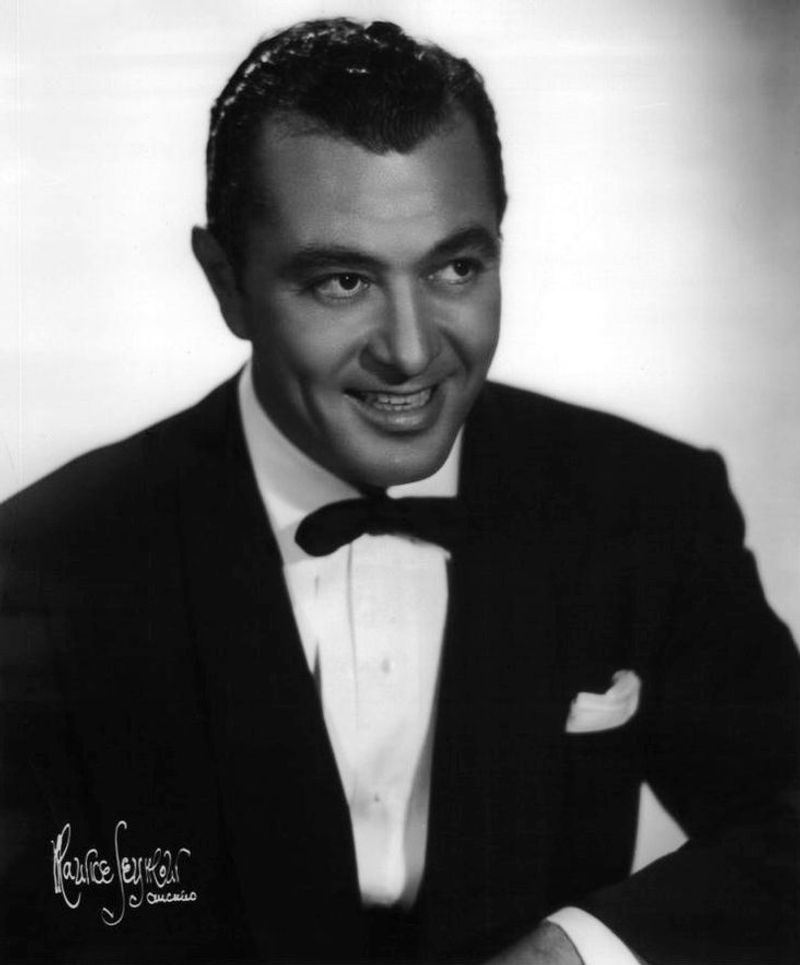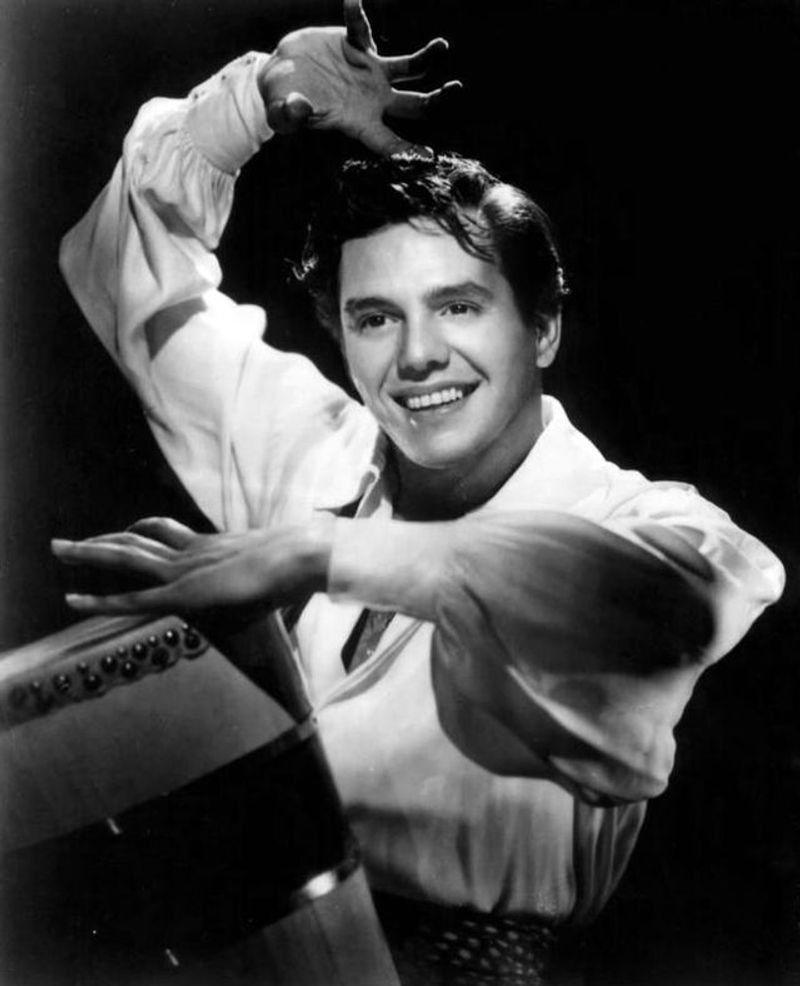Discover intriguing stories behind 15 Hollywood stars who managed to avoid the WWII draft. From health issues to family deferments, explore the unique circumstances and decisions that kept these famous faces from the front lines.
1. John Wayne
Known for his roles as a tough cowboy, John Wayne was surprisingly absent from military service. At 34, with four children, he qualified for a 3-A family deferment. Hollywood considered his screen presence vital to the nation’s morale, allegedly influencing his draft status. Despite attempts to enlist later, his studio reportedly blocked him, prioritizing his films over service. Wayne’s situation sparked debates about his patriotism, but he remained a symbol of American ruggedness on screen.
2. Errol Flynn
Errol Flynn, with his swashbuckling charm, wished to serve but faced health setbacks. Chronic malaria, heart complications, and tuberculosis deemed him unfit. Studios kept his ailments under wraps, fueling public suspicion of draft dodging. His charismatic persona clashed with these suspicions, generating mixed public opinions. Flynn’s health issues were genuine but not widely known, adding a layer of complexity to his draft status and public perception.
3. Dick Haymes
Singer-actor Dick Haymes faced controversy over his draft status. He claimed Argentine citizenship to avoid the draft, citing Argentina’s neutrality. Later, he obtained a medical exemption but faced public backlash and scrutiny. His decision stirred debates on patriotism and citizenship. Despite these controversies, Haymes continued his successful career in entertainment, but his draft evasion shadowed his public image, leading to near deportation in 1953.
4. Lew Ayres
Lew Ayres, known for his conscientious objector status, faced outrage but stood firm in his beliefs. He later served as a medic and chaplain’s aide, demonstrating commitment in a non-combat role. Despite initial public backlash, Ayres’ service in the Pacific earned him respect. His story highlights the complexities of personal beliefs and societal expectations during wartime. Ayres’ journey from controversy to respect showcases the diverse ways individuals contributed to the war effort.
5. Mickey Rooney
Mickey Rooney, initially deemed too short and light for combat, later enlisted. His service, mostly in entertainment units, kept him from the front lines. Rooney’s roles in entertaining troops were valuable, though some critics noted his distance from combat. Despite this, his vibrant performances were morale-boosting. Rooney’s story reflects the varied contributions to the war effort, illustrating how entertainers supported troops beyond the battlefield.
6. Ronald Reagan
Ronald Reagan, with his Hollywood charisma, enlisted but never saw combat due to poor eyesight. Instead, he contributed by making training films for the Army Air Forces. His role was crucial in training and morale, showcasing the power of film in wartime. Reagan’s involvement in creating impactful training videos displayed the multifaceted nature of service during WWII, blending his acting skills with military needs.
7. Fred Astaire
Fred Astaire was too old for combat, yet his dance career flourished during WWII. While not serving in the military, his performances provided entertainment and escape for many. Astaire’s impeccable style and grace brought joy during challenging times. His contributions, while not on the battlefield, still played a vital role in maintaining morale and cultural continuity during the war years.
8. Bob Hope
Bob Hope, though not enlisted, was too old to draft and became a beacon of morale for troops. His USO tours entertained soldiers worldwide. Hope’s humor and wit provided a much-needed escape, earning admiration despite his non-combat role. As a symbol of wartime entertainment, he demonstrated how laughter and performance served as powerful tools in boosting morale and maintaining spirits during the war.
9. Bing Crosby
Bing Crosby, classified 4-F for family reasons, was exempt from military service but not from contributing to the war effort. His broadcasts and war bond drives played a significant role in uplifting spirits and supporting financial needs. Crosby’s soothing voice and patriotic broadcasts kept public morale high, illustrating the impact of music and media in wartime efforts, far beyond the battlefield.
10. Walt Disney
Walt Disney, though not on the frontline, contributed significantly by producing military propaganda and training films. His studio’s work aided in education and morale. Disney’s creativity merged with national service, demonstrating how animation and storytelling could support war efforts without direct combat. His commitment to the cause highlighted the diverse ways civilians could contribute from home.
11. Frank Sinatra
Frank Sinatra, rejected due to a punctured eardrum and anxiety, faced criticism given his immense popularity. Speculations about political influence on his deferment fueled public scrutiny. Despite not serving, his music and performances were pivotal in boosting public morale. Sinatra’s smooth voice continued to resonate, but his draft status remained a point of contention, demonstrating the complex interplay of fame and military service.
12. George Raft
George Raft’s draft evasion rumors included alleged mob connections, though officially, health issues kept him from serving. His persona as a tough guy in films contrasted with these allegations, creating an air of mystery. Raft’s non-service status added intrigue to his public image, blending reality with the gangster roles he famously portrayed. Despite controversies, Raft remained a Hollywood icon.
13. Alan Ladd
Alan Ladd, classified 4-F for stomach ulcers and other health issues, never served in the military. Yet, he contributed to the war effort through publicity and bond drives. Ladd’s dedication to supporting troops, despite not being in combat, illustrated the varied roles celebrities played in wartime. His contributions off the battlefield were still impactful, emphasizing the multifaceted nature of service during WWII.
14. Tony Martin
Tony Martin, initially rejected for dental issues, was eventually drafted but served stateside. His brief service, mainly in entertainment, faced criticism from some. Yet, his performances for troops were appreciated, demonstrating the importance of entertainment in maintaining morale. Martin’s journey highlights the complex expectations placed on celebrities during wartime, balancing public image with personal contributions to the war effort.
15. Desi Arnaz
Desi Arnaz, rejected for a knee injury, stayed active in entertainment. His performances and productions supported the war effort, showing how music and entertainment played crucial roles. Arnaz’s lively presence brought joy and escapism during wartime, emphasizing the need for diverse contributions to morale. His story reflects the unique ways entertainers influenced and uplifted spirits during challenging times, beyond the battlefield.
